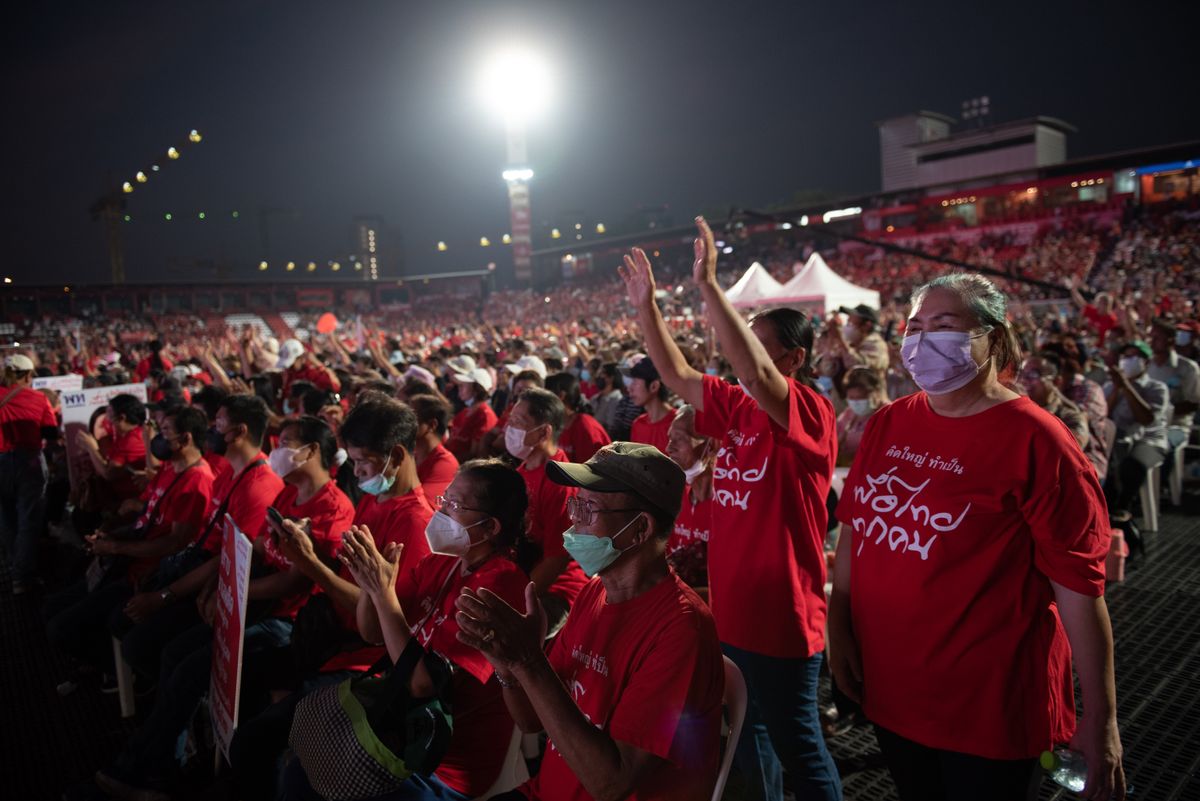Tuesday is a tumultuous day for Thai politics. Thailand’s parliament has elected a new prime minister, thanks to the Pheu Thai Party and pro-military parties – former foes – joining forces to block the Move Forward Party. This made room for billionaire ex-politician Thaksin Shinawatra to return home after 15 years in exile. Shinawatra ruled the Pheu Thai before he was ousted in a military-backed coup in 2006 and fled to Dubai. With the Pheu Thai and the military-backed parties having set aside their differences, a “super deal” between them has allowed for his return.
After landing at home on Tuesday, Shinawatra was taken directly to the Supreme Court, where he was sentenced for three former convictions – which he says were politically motivated – to eight years in prison. He was jailed but is expected to soon receive a royal pardon as part of the deal.
So who’s taking the helm? Parliament elected Pheu Thai leader Srettha Thavisin as prime minister. He will lead the new 11-party coalition that excludes the progressive Move Forward Party, which unexpectedly won the majority in May’s parliamentary elections but has been unable to form a coalition to govern.
The new coalition holds 314 of the 500 seats in Thailand’s House of Representatives. It promises to boost the economy, increase the minimum wage, end mandatory conscription, continue legalizing marijuana, and even rewrite the military-implemented constitution (but it will not touch the royal defamation law, a key tenet of the Move Forward Party’s platform).
Pheu Thai joining forces with military-backed parties is controversial because they were political adversaries in the past. Pheu Thai is being criticized by supporters for backtracking on its pre-election pledge not to join hands with pro-military parties. Moreover, many members of Pheu Thai’s base, known as the “Red Shirts,” died in political violence as they defended Pheu Thai from the pro-military parties trying to eviscerate Shinawatra’s power in 2006. The leader of the Red Shirts resigned on Monday in protest.
Who else will be upset? The millions of young Thai voters who delivered a win to the progressive Move Forward Party back in May – and a rebuke to the military-linked parties in charge – will be angered by today’s events. With their electoral choice upended by political wrangling, street protests by the progressive movement are likely.


















